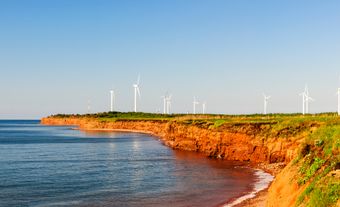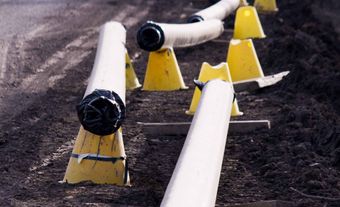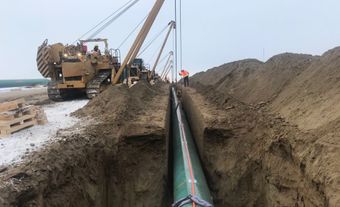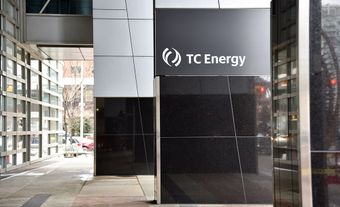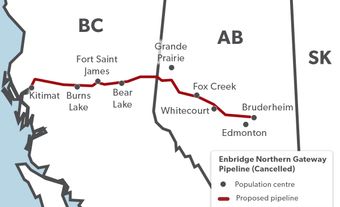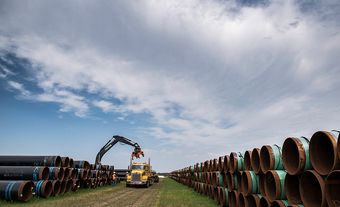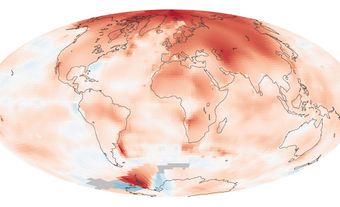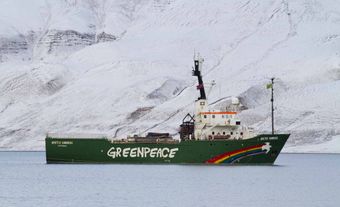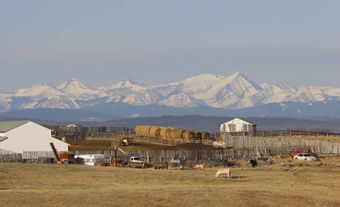Keystone XL was a proposed 1,947 km long pipeline project that would have carried crude oil from Alberta to Nebraska. It was owned by Calgary-based TC Energy Corporation. The pipeline was named XL for “export limited.” First proposed in July 2008, it was the prospective fourth phase of TC Energy’s existing Keystone Pipeline system. In Canada, Keystone XL had the support of both the federal and Alberta governments. However, the project faced significant opposition and legal challenges on environmental grounds. In January 2021, United States president Joe Biden cancelled its permit on his first day in office. On 9 June 2021, TC Energy and the Alberta government announced the termination of the Keystone XL pipeline.

Project Details
The Keystone Pipeline currently ships up to 591,000 barrels of crude oil per day. It carries this oil from Alberta to refineries in Illinois and Texas. Keystone XL would have increased the system’s capacity to 830,000 barrels of oil per day. It would have crossed the Canada-US border en route from Hardisty, Alberta to Steele City, Nebraska. The Alberta portion would have run 259 km.
The Alberta government said that construction would create more than 15,000 direct and indirect jobs in Canada. This would have included 1,400 direct and 5,400 indirect jobs in Alberta. Proponents also cited revenue to Canada from property taxes and said that Keystone XL would add US$3.4 billion to the United States’ GDP.
Opposition
Environmental groups, ranchers, and Indigenous communities in Alberta, Montana and Nebraska opposed the project. Many feared the additional crude oil shipped by the pipeline would pollute lands and rivers. In the context of the Keystone XL debate, climatologist James Hansen said in 2012 that if Canada’s oil reserves were fully tapped, the resulting carbon emissions would mean “game over for the climate.”
Because Keystone would have crossed the Canada-US border, the XL project required the approval of the US State Department. President Barack Obama rejected Keystone XL’s permit in 2015. He said that approving the project would have undercut his country’s leadership on climate change.
Permits from President Trump
In March 2017, US president Donald Trump issued a permit approving the project. TC Energy began seeking other permits and approvals needed to begin construction. In November 2018, however, a federal judge in Montana stopped the project with an injunction. The judge ordered the State Department to complete a more thorough environmental assessment before work could continue. President Trump issued a new permit in March 2019. Several months later, an appeals court lifted the Montana judge’s injunction. This cleared the way for construction in the US.
Construction
TC Energy began building Keystone XL on both sides of the border in the first half of 2020. To speed up this work, the Alberta government promised an equity investment of $1.5 billion in the pipeline. Alberta also guaranteed a $6 billion loan for construction. Keystone XL was expected to be in service in 2023.
Permit Cancelled by President Biden
As one of his first actions in office, President Joe Biden cancelled Keystone XL’s US permit on 20 January 2021. This was part of a larger order designed to re-establish the United States’ leadership on climate action. In response, TC Energy suspended construction. Prime Minister Justin Trudeau and Alberta premier Jason Kenney both expressed disappointment with Biden’s decision. Kenney called it a “gut punch for the Canadian and Alberta economies.”
Termination of Keystone XL
Following more than a decade of delays and controversies, TC Energy and the Alberta government announced the termination of the Keystone XL pipeline project on 9 June 2021. Final costs to the Alberta government “are expected to be materially within $1.3 billion.” The pipeline’s cancellation is viewed as a major victory for environmentalists and Indigenous communities who feared the project’s impact on the environment and climate change (see Environmental Movement in Canada).

 Share on Facebook
Share on Facebook Share on X
Share on X Share by Email
Share by Email Share on Google Classroom
Share on Google Classroom
